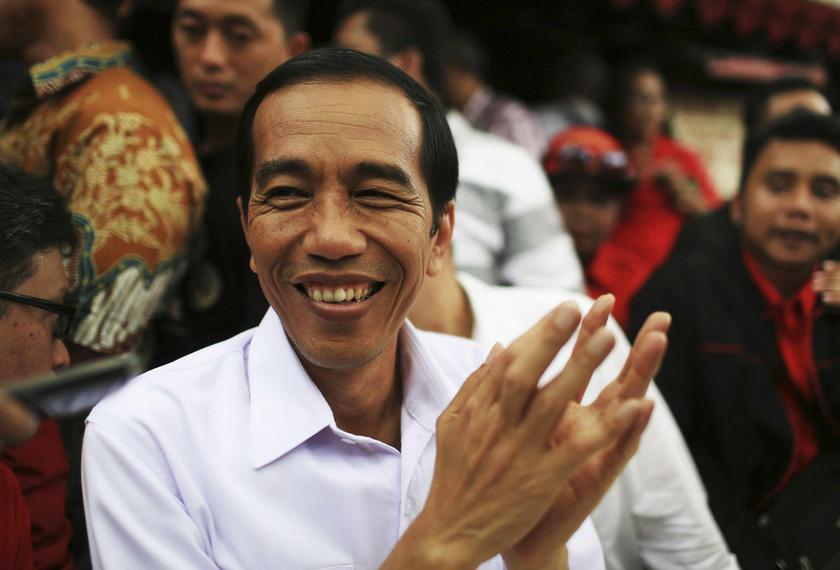JAKARTA, June 4 ― Indonesia’s main employer group is seeking to cap wage gains well below what authorities and unions have sought in recent years, raising the risk of labour disputes that would test the country’s next leader.
The association, known as Apindo, wants to limit increases in the minimum wage next year to 1 or 2 percentage points above inflation, as a new social security programme will add to costs for employers, Chairman Sofjan Wanandi said in an interview yesterday. The government said last year it planned to set a cap of 10 percentage points above price gains, and the minimum pay in the capital rose 11 per cent this year.
The country’s next president will take the reins of Southeast Asia’s largest economy in October, with annual wage negotiations usually due to be concluded in the final quarter. Jakarta Governor Joko Widodo, who approved a 2014 minimum-wage gain below the 50 per cent level demanded by local workers, is the poll favourite to win the leadership election in July.
“Our costs will increase next year to pay social security for employees,” said Wanandi, who estimates the new programme to fund health care, pensions and insurance coverage for workers could mean additional costs of more than 30 per cent of salaries. “We can’t avoid layoffs” if wages rise more than the 2 percentage points above inflation, he said.
Last year saw minimum wage gains of 44 per cent in Jakarta, leading employers to cut 200,000 jobs, Wanandi said. Some investors from South Korea and Taiwan relocated textile and shoe factories to Bangladesh and Cambodia, while the electronics industry moved some jobs to Vietnam, he said.
The new president will inherit an economy growing at its weakest pace in more than four years, as slowing investment growth and falling exports spur trade and current-account deficits that have weighed on the rupiah.
Catching up
Apindo takes part in annual wage negotiations together with regional governments and unions. About two million workers held a strike across 22 provinces at the start of November to demand the government increase wages by 50 per cent for 2014, labour groups said.
Indonesia has experienced increased industrial action in the past two years as unionised workers seek a greater share of Southeast Asia’s largest economy and better pay to cope with inflation, which has exceeded 7 per cent for 11 straight months.
In Jakarta, the capital city around which commerce and industry is concentrated, minimum monthly wages are 2.44 million rupiah (RM667). Malaysia set its first minimum wage levels in 2013 at RM900 a month for workers in the more industrialised peninsular states.
Indonesia’s new national social security plan for workers will be implemented from January 1 to cover health, occupational injuries, provident funds, pension and death benefits.
Heavy burden
Current President Susilo Bambang Yudhoyono, who is required to step down after two terms, will pass to his successor challenges including rising labour costs, onerous bureaucracy, legal uncertainty and increasing fuel subsidy bills that weigh on the state’s ability to overhaul infrastructure, Wanandi said.
“The current government will give a heavy burden to the new government,” Wanandi said. There’s been no significant improvement in infrastructure in the last five years, including for power supplies, which raises business costs, he said.
Both Widodo and his main challenger, ex-special forces general Prabowo Subianto, have pledged to build roads and improve infrastructure. Widodo’s policy platform includes easing the issuance of business permits and reducing fuel subsidies, while Prabowo wants to create two million jobs a year and to reduce income inequality.
A government led by Widodo and his running mate Jusuf Kalla, a former vice-president, would balance the interests of the country and its people with business needs, Tjahjo Kumolo, the secretary-general of Widodo’s Indonesian Democratic Party of Struggle, or PDI-P, said last month. Widodo, known as Jokowi, started a furniture export business before entering politics while Kalla ran a family conglomerate.
“Jokowi and Jusuf Kalla are better for us in terms of policy implementation,” said Wanandi. “There’s new hope from them and we may boost investment if they win.” ― Bloomberg






















